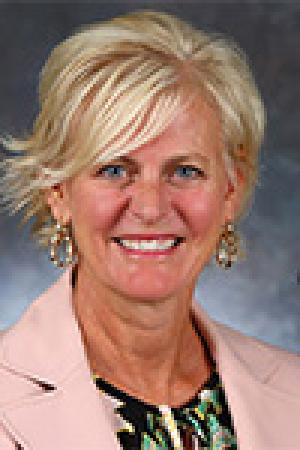
Millions of children struggle with a chronic condition called attention-deficit hyperactivity disorder (ADHD). In fact, it is estimated that approximately 4%-12% of children have ADHD.
School requires students to sit still for long periods of time, concentrate and listen – all of which are more difficult for children with ADHD. Thankfully, as a parent, you can help your child navigate these challenges by working with teachers and implementing effective strategies to help your child learn.
What is ADHD?
Attention Deficit Hyperactivity Disorder, or ADHD, is a brain-based biological disorder with an unknown cause. It’s a diagnosis both children and adults can receive. “It's a disorder of executive functioning where there's trouble with attention, focus, impulsivity and hyperactivity,” says Kelli Lund, MD, board-certified pediatrician at Holland Hospital Family Medicine – South Washington.
Symptoms of ADHD might include:
- Fidgeting
- Lack of focus
- Trouble finishing tasks
- Forgetfulness
ADHD in the classroom
“Imagine you're in a classroom with 25 or 30 kids,” says Dr. Lund. “There's a lot of movement, people shuffling, maybe dropping a pen. It's hard for a person with ADHD to filter out the distraction.”
“Children with ADHD may not be able to concentrate long enough to hear a full set of directions,” adds Dr. Lund. “Or they may be disruptive because they can’t control their impulse to get up and move around. These struggles will impact a child’s school experience, both socially and academically.”
What if I think my child has ADHD?
If you think your child might have ADHD, Dr. Lund recommends discussing your concerns with your child’s teacher. While parents can request that the school evaluate their child for ADHD, it may be more efficient to take your child to their pediatrician for an evaluation or referral to a specialist.
Helping your child navigate school.
If your child is diagnosed with ADHD, you can work with your child’s teachers to establish modifications in the classroom. This can be as simple as moving the child to the front of the room.
However, if these steps are not enough, your child can be evaluated to see if they qualify for free special education services under the Individual with Disabilities Education Act (IDEA). If they qualify, your child can get an IEP, or Individualized Education Plan, which can include help with reading, social skills training or occupational therapy.
Even if your child does not qualify under IDEA, they may qualify for a 504 B Plan, which ensures children with a disability receive accommodations at school. “Kids have the right to an education that acknowledges their difficulties and disabilities,” says Dr. Lund. This might include giving your child more time for tests or allowing them to test in a quiet space away from distraction.
Where can I learn more?
Holland Hospital Family Medicine – South Washington offers medical care to patients of all ages, for every member of the family. As an experienced pediatrician, Dr. Kelli Lund provides exceptional care for newborns to young adults, including, sick and well-child, annual physicals, immunizations, evaluations, referrals to specialists and more.
Dr. Lund welcomes new patients at Family Medicine – South Washington. Call (616) 394-3200 for a new patient appointment.
